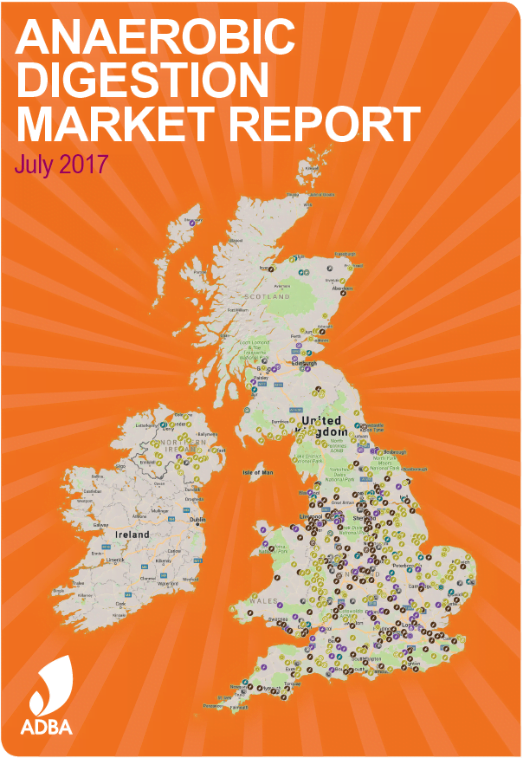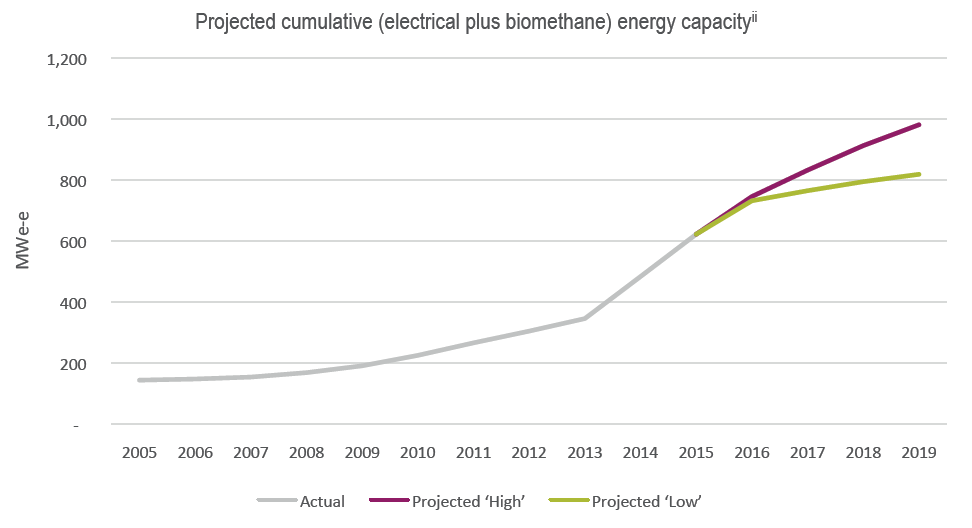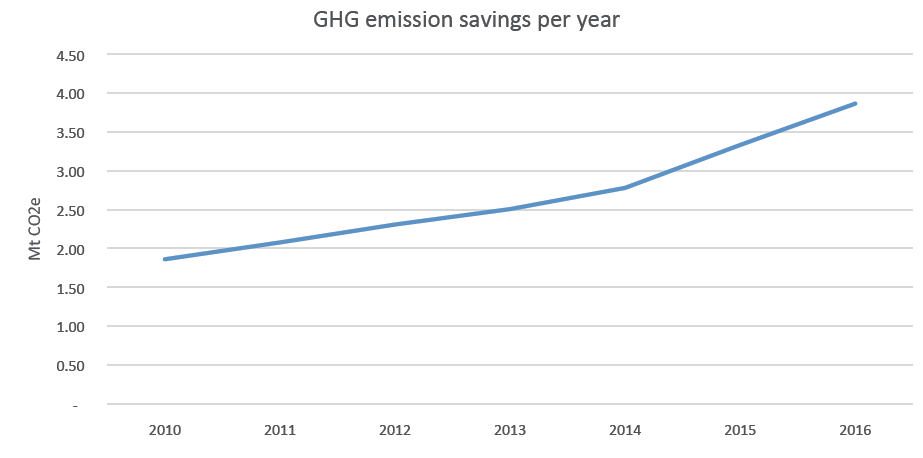New ADBA report: Anaerobic digestion plants in the UK now have enough capacity to power over a million homes.
Anaerobic digestion (AD) plants across the UK now have enough capacity to power over a million homes.

The Anaerobic Digestion & Bioresources Association’s (ADBA’s) July 2017 Market Report investigates and explores the growth, developments and market changes in the AD industry to date, and projections for the years ahead.
The report shows that ADin the UK now has a capacity of 730 MWe-e, an increase of 18% over this time last year, with total energy generation of 10.7 TWh per year from a total of 557 plants in live operation. This gives the UK more capacity to recycle food waste, more sustainable farming and wastewater treatment, more low-carbon baseload electricity, and more green gas in our grid.

The growth has come despite policy uncertainty around the future of low carbon energy support.
Delays in the passing of legislation for the Renewable Heat Incentive (RHI), which is set to restore tariff levels to 5.35 p/kWh, has meant that there are currently at least 13 AD plants on hold. Electricity generation from AD, meanwhile, is receiving next to no government support, with the Feed-In Tariff for >500 kW plants down to just over 2p/kWh.
50-80 new AD plants were commissioned in 2016 but this number is projected to fall to 19-64 in 2017 as a result of policy uncertainty.
AD is currently reducing greenhouse gas emissions by 1% and employing more than 3,500 people in the UK, but with the right policy support has the potential to reduce emissions by 4% and employ 35,000 people.

The full 40-page report covers policy, market growth, feedstocks, energy generation, load factors, market potential, greenhouse gas savings, investment, jobs and exports in the industry, and more. The data is presented as a series of tables and charts with analysis on the different issues and elements that affect the UK AD industry.
If you are interested in purchasing the report and for information about pricing, please contact Alex Monks by e-mail (Alex.Monks@adbioresources.org) or by phone (0203 176 5418).
Please find more information about the report here.





